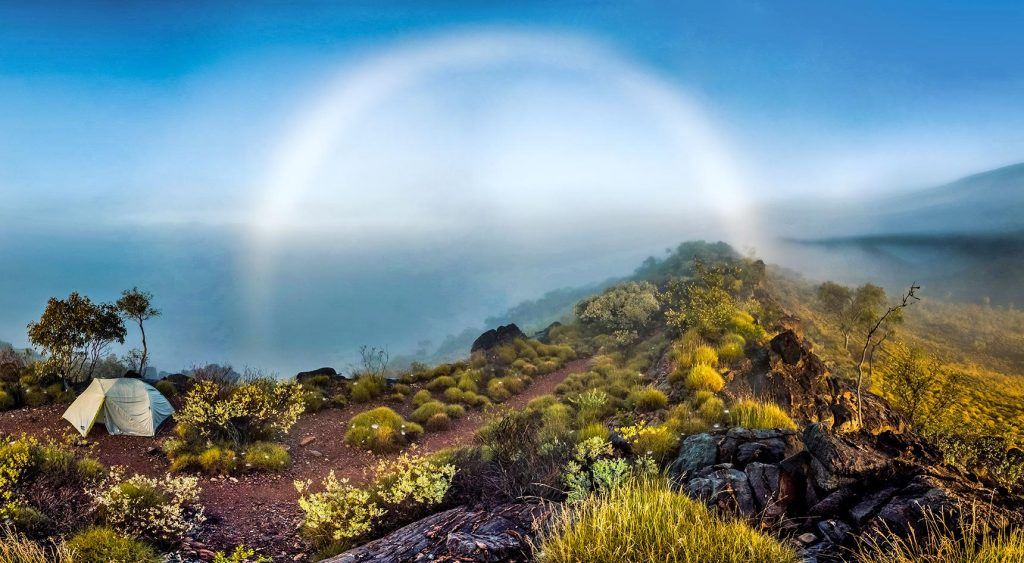How to tread light when you camp

Camping is already an environmentally low-impact way to holiday but there are a few ways you can lessen your footprint even more.
Spending more quality time outside among nature may just make you want to protect it and continue making sustainable choices well beyond the camping trip.
Before you go
You can make a big difference with a bit of planning before ‘roughing it’.
Meal planning: Plan your meals to prevent food spoilage or waste by overpacking. Bring and store your food in reusable, sealed containers and save the challenge of taking unnecessary packaging home safely. Reusing large, pre-frozen water bottles in your Esky can help keep the ice solid for longer and help avoid food spoilage.
Pack a biodegradable or natural soap for washing your reusable cutlery, crockery and containers. It’s less harmful to the environment and waterways.
You can also try levelling up your green game from the onset by purchasing food that’s organic and package free.

Choosing eco-friendly products and items: Use natural soaps and toothpastes to avoid chemicals landing on the ground. Slap on reef-safe sunscreen if you’re out swimming to keep chemicals out of the waterways.
If you’re in the market for new equipment, there are eco-friendly options like sleeping bags, tents and swags made from sustainable materials.
Powering gadgets: There are plenty of solar-powered items you can use for camping, such as lights to illuminate your campsite at night and phone power-banks, as well as wind-up torches to reduce reliance on batteries and noisy generators.
While you’re there
You’ve packed to reduce waste and conserve resources. Once you arrive, it’s time to keep the natural habitat pristine.
Keep wildlife in mind: Don’t forget that you’re stepping into their territory.
Some eco-friendly locations don’t let visitors scavenge for firewood so make sure you bring your own wood and don’t burn anything else on the fire (other than marshmallows).
Stick to existing trails: Stick to existing trails, whether you’re driving to find the perfect spot to set up camp, going for a walk near your campsite or back in your car when it’s time to say goodbye. This will avoid trampling native vegetation and upsetting the local ecosystem.
Noise can be pollution too: Leave your powerful portable speaker at home. That booming bass and other loud noises can disturb the native wildlife and besides, you can listen to the latest hits any time. Immerse yourself instead in the music of birdsong, percussion of raindrops on the ground and the whisper of wind through the treetops.
Collect all waste as you go: Set up bags or bins on arrival so you can easily sort waste, and you’ll be grateful to your past self when it comes time to dispose of the already-sorted compostable waste, recycling and other rubbish. Don’t forget small, dropped ring pulls and bottle caps, plastics and packaging, body wipes and any by-products from nature calling if there’s no access to toilets, which can be deposited in a designated dump point, signposted in many towns across the country.

Before you leave
Leave no trace: Before you pack up and head home, take a moment to look around you.
Do a thorough sweep for tiny bits of wrappers and leftover scraps of food that could harm wildlife and empty dishwashing water well away from waterways.
See if you can pick up at least one piece of litter that was already there before you arrived, leaving your camp site a little better than when you got there.
Take only memories, leave only footprints – and try to make them light, too.
Ready to pack with purpose?
Hit the road with our range of caravan and camping gear.

